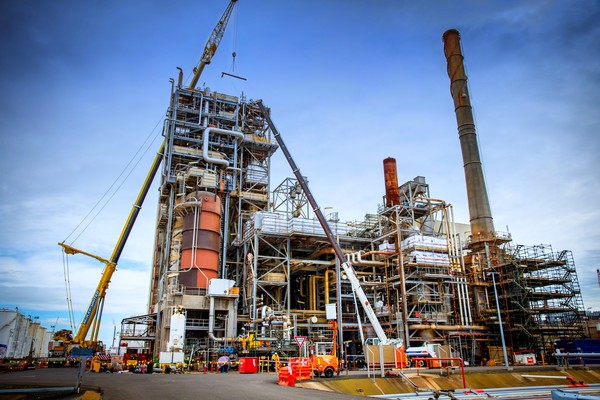
By Luke Voogt
Geelong could lose 2500 manufacturing jobs if energy prices continue to rise at current rates, according to Australia’s peak industry group.
Energy price rises were a “life or death matter” for a quarter of Australian manufacturers according to Australian Industry Group’s national policy advisor Tennant Reed.
Mr Reed said the national figure would likely apply for Geelong’s 10,207-strong manufacturing workforce.
“Half of manufacturers would be exposed enough for (energy prices rises) to be noticeable,” he added.
The manufacturing sector was Geelong’s third highest employer and produced, by far, the city’s highest economic output per sector, according to Enterprise Geelong statistics.
The sector produced $9.6 billion per year, more than a third of the $26.2b annual economic output for Geelong.
The price rises threatened energy-intensive industries, particularly those whose power bills were their highest cost, Mr Reed said.
His warning came after Viva Energy recently forecast power price rises of more than half, or $25 million per annum, for its Geelong refinery.
A source told the Indy in July that power prices could instead double to up to $100m.
The Corio refinery employs about 700 people and supplies half of Victoria’s fuel.
Other manufacturers have raised concerns about rising power prices affecting their Geelong operations.
Dow Chemicals, which employs 50 people at its Moolap emulsions plant, urged the Federal and State Governments to find solutions to Australia’s energy crisis.
But local manufacturers could be in for a reprieve with power prices softening recently, Mr Reed said.
“We would expect gas prices to ease off the extreme from earlier this year.”
Gas prices doubled between 2014 and 2017 due to scarcity and major companies exporting the majority overseas, Mr Reed said.
In September Australia’s largest gas companies assured the Federal Government they would increase supply to the eastern states next year to avoid export restrictions.
“The Federal Government’s deal with the exporters has, we hope, delivered a bit of breathing room,” Mr Reed said.
Wholesale electricity prices had more than doubled, from $40 to $100 per megawatt hour, since 2014, putting strain on manufacturers, he said.
“For the largest energy users wholesale energy charges are the most important.”
The closure of power plants such and the reliance on gas-fuelled electricity had led to the increase, Mr Reed said.
But renewables coming online could help ease prices, he said.
“This is the worst year in front of us. It will get better over the next couple of years.”
Mr Reed backed the State Opposition’s position of lifting Victoria’s moratorium on onshore gas.
Member for Western Victoria Simon Ramsay broke ranks with the State Liberals to call for the lifting of the ban before his party followed suit.
Mr Reed encouraged the government to explore importing gas and reconsider its position on unconventional extraction methods such as fracking.
“Most of the future supply options are unconventional gas.”
Geelong Manufacturing Council had lobbied both governments and held workshops on energy saving options, said chief executive officer David Peart.
“Our concern is that excessive price rises have the potential to further erode the competitive and industry base and reduce employment and economic growth.”






